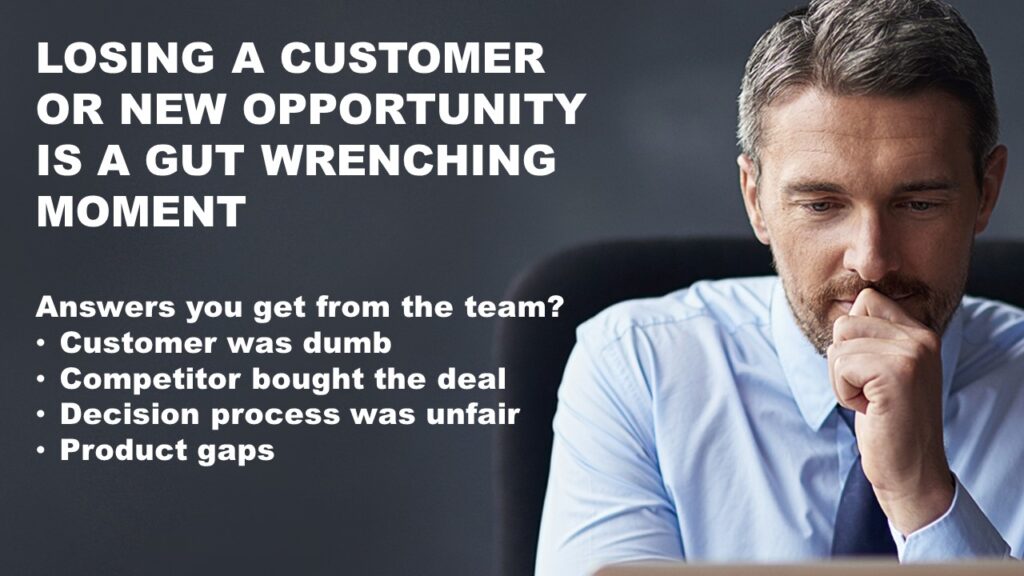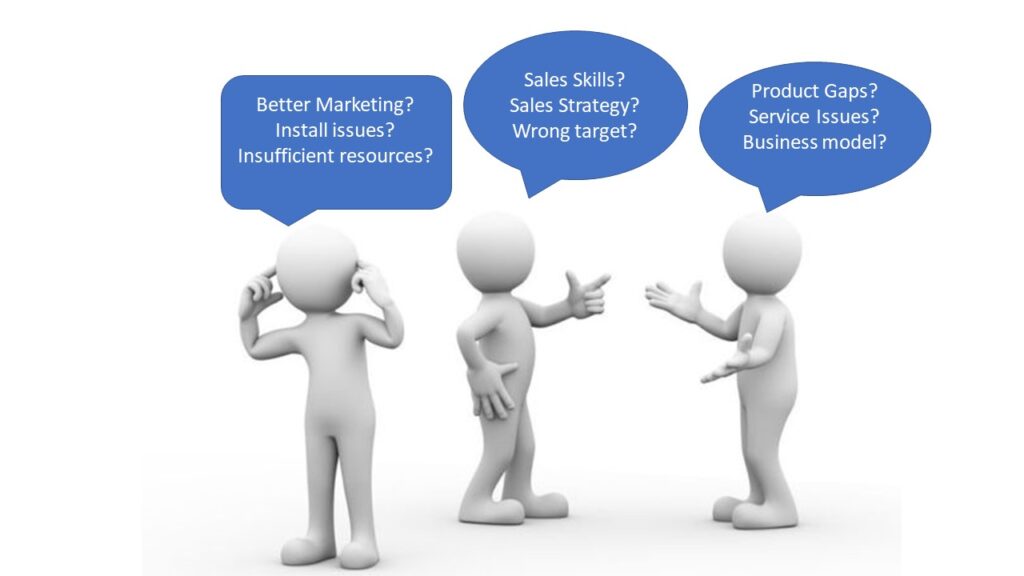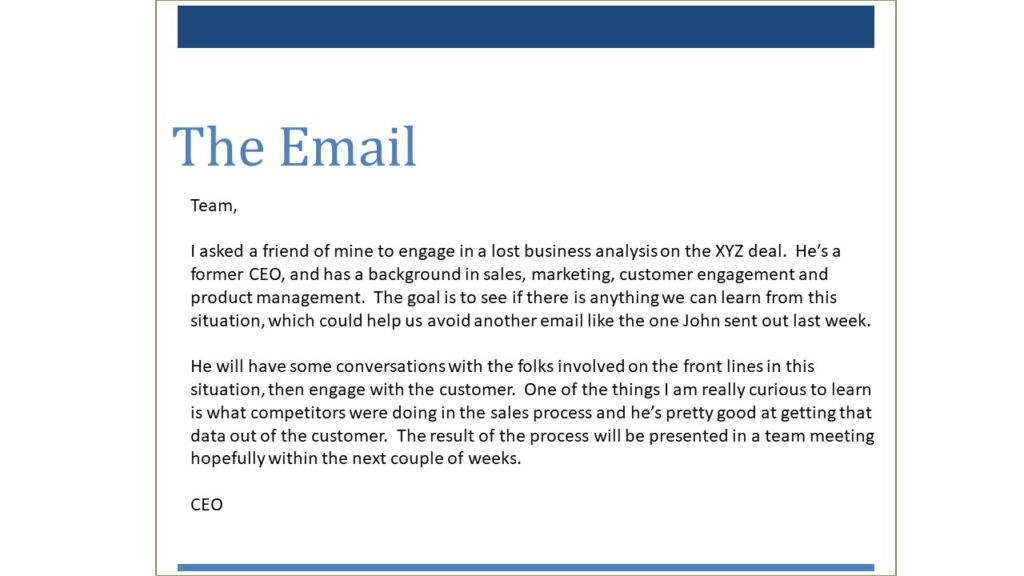
As a CEO or CRO, you know the pain. The email comes in… “We lost XYZ Inc.”
The entire organization feels it. The potential for negative morale is high. Your first inclination is to assure. The sales team answers the question of what happened, and the explanation is on target with organizational assurance – “It’s not a reflection of something wrong with us.” Quickly everyone jumps on board. Yet you know, deep down inside, you should not have lost that business. Somewhere in the details of this story, lies motivation for change that may be critical to the business.
You likely have one shot to engage with the customer to understand what happened. You also need to interview frontline folks involved in the sales process to get their sense of where we may have tripped or did not execute effectively. But, who will the customer be willing to be honest with? Will frontline folks be open with politically explosive information? You need to keep cross functional controversy from fogging up the process? The CEO has the right title to get the call, but you know it’s often a reach for their customer engagement skillset.

You decide it might be wise to pull an expert in to do this. A quick search on Google shows you there are few options. Lots of consulting companies will evaluate your sales process, your marketing strategy, or your customer engagement mechanisms. Lots of team development programs or tools that will track lost business patterns. You need a high caliber person to engage both internally and with the customer in a process that yields actionable information. Someone who then can bring that information to the team in a way that galvanizes focus on getting better (If a salesperson does the call, they are not going to hear and or share the part about how flawed the sales process was). And this needs to be a two week, not a two-month thing.
So, the team email goes out (it should be from the CEO). You are on your way to knowing what happened. Now you need to call that “friend of yours.” And that’s when you call me.

The team meeting comes. I look across the room and share, “This is what Joe (the customer) said…. So somehow in the process of working with this client and or competitors working with this client, this is how we were perceived.”
There will be different theories as to why that’s true. Bringing out the different theories which usually point at weakness in a specific area, is healthy. The truth is there is nothing more helpful to a business, but also more difficult, then driving cross functional teams to work together to get better.
As a CEO and a CRO, I used to be energized when that lost business email came in. I knew I could use it to move my company forward in a way that no other process would yield.
About the Author: Scott Martiny is the former CEO of two companies, one a startup. He has also held positions that involved leading, sales, support, project management, product management and development teams. His current company Finding Winners is a consulting company which executes initial Lost Business Assessments with clients and then offers follow on programs which can assist companies in evolving their sales, marketing and customer engagement efforts. www.findingwinners.com

